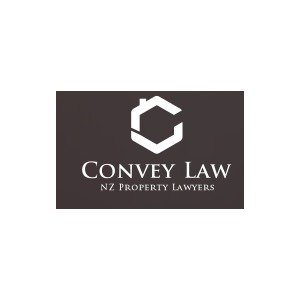Best Sexual Abuse Lawyers in New Zealand
Share your needs with us, get contacted by law firms.
Free. Takes 2 min.
Or refine your search by selecting a city:
List of the best lawyers in New Zealand
About Sexual Abuse Law in New Zealand:
Sexual abuse is a serious issue in New Zealand, with both children and adults being vulnerable to such crimes. The law in New Zealand aims to protect individuals from sexual abuse and hold perpetrators accountable for their actions. If you have been a victim of sexual abuse, it is important to seek legal advice to understand your rights and options for pursuing justice.
Why You May Need a Lawyer:
If you have been a victim of sexual abuse in New Zealand, you may need a lawyer to help you navigate the legal process. A lawyer can provide you with valuable advice on your rights, help you understand the legal options available to you, and represent you in court if necessary. Additionally, a lawyer can help you seek compensation for any damages you have suffered as a result of the abuse.
Local Laws Overview:
In New Zealand, the Crimes Act 1961 defines sexual abuse as any unwanted sexual act or activity that is non-consensual. Sexual abuse can include a range of offenses, such as rape, indecent assault, and sexual exploitation. The law in New Zealand takes a strong stance against sexual abuse and provides harsh penalties for offenders. It is important to report any instances of sexual abuse to the police and seek legal advice to ensure that your rights are protected.
Frequently Asked Questions:
1. What should I do if I have been a victim of sexual abuse?
If you have been a victim of sexual abuse, it is important to seek help and support as soon as possible. You should consider reporting the abuse to the police and seek medical attention if needed. It is also advisable to speak to a lawyer who can provide you with legal advice and guidance on your options.
2. What are my rights as a victim of sexual abuse in New Zealand?
As a victim of sexual abuse in New Zealand, you have the right to seek justice and hold the perpetrator accountable for their actions. You also have the right to access support services and seek compensation for any damages you have suffered as a result of the abuse.
3. How can a lawyer help me with my case of sexual abuse?
A lawyer can provide you with valuable legal advice, represent you in court, help you understand your rights, and assist you in seeking compensation for any damages you have suffered. A lawyer will work to protect your interests and fight for justice on your behalf.
4. Is there a time limit for bringing a claim of sexual abuse in New Zealand?
There is no specific time limit for bringing a claim of sexual abuse in New Zealand. However, it is important to seek legal advice as soon as possible to ensure that your rights are protected and to increase the chances of a successful outcome.
5. What evidence do I need to prove my case of sexual abuse?
Evidence of sexual abuse can vary depending on the circumstances of the case. It may include medical reports, witness statements, and any other documentation that supports your claim. A lawyer can help you gather the necessary evidence to prove your case in court.
6. Can I remain anonymous when reporting sexual abuse in New Zealand?
You may be able to make an anonymous report of sexual abuse to the police. However, if you choose to pursue legal action, your identity may be disclosed as part of the legal process. It is important to discuss your options with a lawyer to understand the implications of remaining anonymous.
7. Can I seek compensation for damages resulting from sexual abuse?
Yes, you may be able to seek compensation for damages resulting from sexual abuse in New Zealand. A lawyer can help you assess the damages you have suffered and pursue a claim for compensation through the legal system.
8. Can I file a civil lawsuit for sexual abuse in addition to criminal charges?
Yes, you may be able to file a civil lawsuit for sexual abuse in addition to pursuing criminal charges against the perpetrator. A civil lawsuit can help you seek compensation for damages and hold the offender civilly liable for their actions.
9. Are there support services available for victims of sexual abuse in New Zealand?
Yes, there are a range of support services available for victims of sexual abuse in New Zealand, including counseling, legal advice, and advocacy services. It is important to seek help and support to address the emotional and practical effects of sexual abuse.
10. How can I find a lawyer to help me with my case of sexual abuse?
You can find a lawyer to help you with your case of sexual abuse by contacting the New Zealand Law Society or seeking recommendations from friends, family, or support organizations. It is important to choose a lawyer who has experience in handling cases of sexual abuse and who you feel comfortable working with.
Additional Resources:
If you are in need of legal advice or support related to sexual abuse, you may find the following resources helpful:
- New Zealand Law Society: www.lawsociety.org.nz
- Sexual Abuse Prevention Network: www.sapons.org.nz
- HELP Auckland: www.helpauckland.org.nz
These organizations provide valuable information and support for individuals affected by sexual abuse in New Zealand.
Next Steps:
If you have been a victim of sexual abuse in New Zealand and are in need of legal assistance, it is important to seek help as soon as possible. Contact a lawyer who specializes in cases of sexual abuse to discuss your options and rights. Remember, you are not alone, and there are resources available to support you through this difficult time.
Lawzana helps you find the best lawyers and law firms in New Zealand through a curated and pre-screened list of qualified legal professionals. Our platform offers rankings and detailed profiles of attorneys and law firms, allowing you to compare based on practice areas, including Sexual Abuse, experience, and client feedback.
Each profile includes a description of the firm's areas of practice, client reviews, team members and partners, year of establishment, spoken languages, office locations, contact information, social media presence, and any published articles or resources. Most firms on our platform speak English and are experienced in both local and international legal matters.
Get a quote from top-rated law firms in New Zealand — quickly, securely, and without unnecessary hassle.
Disclaimer:
The information provided on this page is for general informational purposes only and does not constitute legal advice. While we strive to ensure the accuracy and relevance of the content, legal information may change over time, and interpretations of the law can vary. You should always consult with a qualified legal professional for advice specific to your situation.
We disclaim all liability for actions taken or not taken based on the content of this page. If you believe any information is incorrect or outdated, please contact us, and we will review and update it where appropriate.
Browse sexual abuse law firms by city in New Zealand
Refine your search by selecting a city.

















